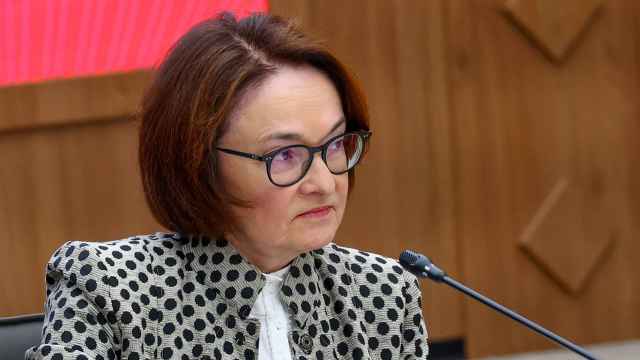PARIS — The Organization for Economic Cooperation and Development further cut its growth outlook for most of Central and Eastern Europe and Russia on Wednesday but said a moderate turnaround in the economies was on the way thanks to expected improvement in the eurozone.
The club of the world's most developed countries said inflation in Russia has probably peaked and would return to the Central Bank's target range. It called on Russia to set a longer-term inflation target to help anchor inflationary expectations and bring down long-term interest rates.
The OECD said Poland and the Czech Republic should consider an easier monetary policy while Russian rates should stay on hold. In Hungary, further interest rate cuts would risk a drop in the forint, it warned.
Russia
The OECD cut its 2013 growth outlook to 2.3 percent from 3.8 percent following a slowdown at the turn of the year in key gas and oil exports. Next year, it sees growth of 3.6 percent, below the 4.0 percent forecast in December.
Inflation was seen falling from February's 7.3 percent peak.
"Inflation should slow down toward the Central Bank target range [of 5-6 percent] as effects of bad harvest and administrative price increase fade. This will increase growth of real household incomes and consumption," OECD said.
It said new limits on spending of oil revenues implied a moderate budget tightening in 2013 and 2014.
"The newly adopted oil-based fiscal rule will drive fiscal policy and force hard choices among announced spending priorities: modernizing the army, strengthening social protection and investing in infrastructure," it said.
The OECD said short-term interest rates should remain on hold despite market expectations of a cut next month and called for a stronger monetary policy framework.
This should involve announcing the inflation target beyond 2014 to anchor expectations and narrowing the policy rate corridor to reduce the high volatility of interbank rates.
Poland
The OECD cut Poland's growth forecasts for this year and next year to 0.9 and 2.2 percent from 1.6 and 2.5 percent, citing a weak labor market and a slack overall economy.
It said interest rates should come down and the government should let automatic stabilizers act if growth weakens further.
"Given the persistent weakness, further monetary policy easing is appropriate," it said.
Hungary
The OECD raised its outlook for Hungarian growth to 0.5 this year and 1.3 percent next from a previous -0.1 and 1.2 percent.
It called for "phasing out distortive taxes on banks and non-tradable sectors" and warned of the potential dangers of easy monetary policy, including further rate cuts and a scheme to lend banks at 0 percent to boost small business lending.
"While these steps could help to revive bank lending, which has been shrinking since 2008, monetary easing also risks currency depreciation, which could prove difficult to handle in view of the large debts denominated in foreign currencies, and lead to higher inflation," the OECD said.
Czech Republic
The central bank should consider quantitative easing given inflation is seen falling further and interest rates are near zero. The central bank has said it is ready to intervene to weaken the crown currency should it see a need to ease policy.
The OECD cut the Czech GDP forecast to -1.0 and 1.3 percent for 2013 and 2014, from a previous 0.8 and 2.4 percent.
Slovakia
Slovakia's growth forecasts were cut to 0.8 this year and 2.0 percent in 2014, from 2.0 and 3.4 percent respectively.
Rising unemployment, which the OECD warned might become structural, will hold back consumption along with fiscal restriction and low wage growth.
Slovenia
Bank restructuring is key to restoring confidence and maintaining access to international markets, the OECD said.
The eurozone country, which grappling with big losses in its largely state-owned banking sector, should continue fiscal consolidation to halt rapid growth in debt.
The general government financial balance will show a gap of 7.8 percent of gross domestic product this year, it said.
The economy is expected to shrink by 2.3 percent this year and eke out a 0.1 percent expansion next year.
A Message from The Moscow Times:
Dear readers,
We are facing unprecedented challenges. Russia's Prosecutor General's Office has designated The Moscow Times as an "undesirable" organization, criminalizing our work and putting our staff at risk of prosecution. This follows our earlier unjust labeling as a "foreign agent."
These actions are direct attempts to silence independent journalism in Russia. The authorities claim our work "discredits the decisions of the Russian leadership." We see things differently: we strive to provide accurate, unbiased reporting on Russia.
We, the journalists of The Moscow Times, refuse to be silenced. But to continue our work, we need your help.
Your support, no matter how small, makes a world of difference. If you can, please support us monthly starting from just $2. It's quick to set up, and every contribution makes a significant impact.
By supporting The Moscow Times, you're defending open, independent journalism in the face of repression. Thank you for standing with us.
Remind me later.





